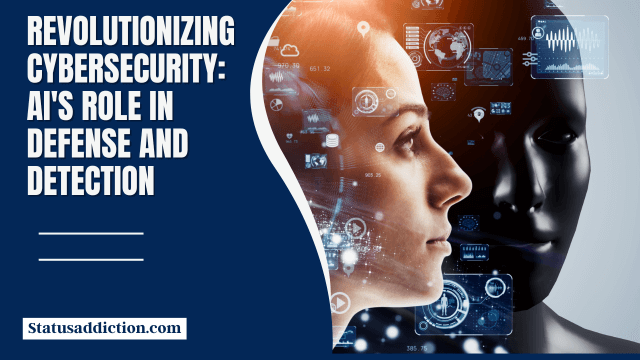In today’s digital age, cybersecurity has become a major concern for individuals and organizations alike. With better and faster internet being more accessible due to service providers like Spectrum that provides Spectrum Internet only at the cheapest price, a large amount of personal data has been stored on the internet. This data has become increasingly vulnerable to cyber-attacks. With the increasing frequency and sophistication of cyberattacks, there is a need for more advanced defense mechanisms to protect against potential threats. One technology that has shown great promise in this area is Artificial Intelligence (AI). By leveraging AI in cybersecurity, organizations can enhance their defense mechanisms and detect threats more effectively.
Table of Contents
Understanding AI in Cybersecurity
AI is a branch of computer science that deals with the development of intelligent machines that can do tasks that usually require human judgment or intellect, such as learning, analysis,problem-solving, evaluation, and decision-making. In cybersecurity, AI is used to Examine vast quantities of data and detect trends that could signify potential threats.
AI is an effective tool in cybersecurity because it can detect threats that traditional security systems may miss. Traditional security systems are often based on rule-based algorithms that are not able to adapt to changing threats. AI, on the other hand, can learn and adapt to new threats, making it a more effective defense mechanism.
Applications of AI in Cybersecurity
There can be several applications of AI in cybersecurity, including:
Threat Detection: AI has the ability to scrutinize network traffic and identify irregularities that could signify potential threats. By analyzing data in real time, AI can quickly identify and respond to potential threats before they can cause damage.
Malware Detection: AI can be utilized to detect malware by analyzing patterns in code that may indicate the presence of malicious code. This can allow organizations to identify and remove malware before it can cause damage.
User Behavior Analysis: AI can also be used to analyze user behavior and identify anomalies that can signify potential threats. By monitoring user behavior, AI can detect suspicious activity and prevent unauthorized access to sensitive data.
Vulnerability Management: AI can be utilized to identify vulnerabilities in software and hardware systems. By analyzing data from security scans, AI can identify potential weaknesses that could be exploited by attackers.
Challenges of AI in Cybersecurity
While AI has the potential to revolutionize cybersecurity, there are also several challenges that must be addressed. One of the main challenges is the lack of skilled professionals who can effectively implement and manage AI systems. Another challenge is the potential for AI systems to be hacked and used against organizations.
Additionally, AI systems can sometimes generate false positives, which can lead to unnecessary alerts and cause organizations to waste resources investigating non-existent threats. To address these challenges, organizations must implement effective training programs to make sure that their staff is equipped to manage AI systems. They must also ensure that their AI systems are secure and that they have effective response plans in place in case of an attack.
Future Prospects of AI in Cybersecurity
Despite the challenges, the future prospects of AI in cybersecurity are promising. AI has the potential to transform cybersecurity by providing faster, more accurate threat detection and response. As AI continues to evolve, we can expect to see even more advanced applications of technology in cybersecurity.
In the future, we may see AI systems that can autonomously detect and respond to threats without human intervention. We may also see AI systems that are capable of learning and adapting to new threats in real time, making them even more effective at defending against cyberattacks.
Conclusion
AI has the potential to revolutionize cybersecurity by providing more advanced defense mechanisms and faster, more accurate threat detection. However, to realize the full potential of AI in cybersecurity, organizations must address the challenges associated with the technology and ensure that their systems are secure and effective. With continued innovation and development, AI has the potential to transform the cybersecurity landscape and protect individuals and organizations against cyber threats.

